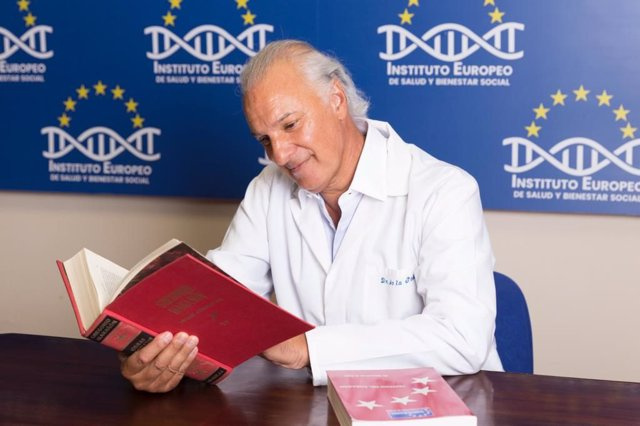(Information sent by the signatory company)
Madrid, December 29, 2023.
A myocardial infarction occurs every 5 seconds in the world. In Spain there are 70,000 a year, of which 30% of people do not arrive at the hospital on time.
In this sense, Dr. Manuel de la Peña, director of the Chair of Heart and Longevity and president of the European Institute of Health and Social Welfare, emphasizes that a heart attack occurs due to a total occlusion of one of the heart arteries, while In angina pectoris, there is a partial occlusion produced by a process of arteriosclerosis, which is influenced by poorly controlled blood pressure (it should be less than 130/80), high LDL cholesterol levels (it should be less than 70) and lipoprotein. (a) elevated (must be less than 50), emotional stress, overweight-obesity-diabetes, tobacco, among others. When a person has pain or tightness in the central part of the chest due to a lack of blood flow to the heart muscle ( called anginal pain), taking sublingual nitroglycerin helps dilate the coronary arteries to increase the flow of blood to the heart, allowing oxygen-rich blood to reach this muscle, causing pain and tightness in the chest to disappear or improve. De la Peña adds that nitroglycerin is used to treat episodes of angina pectoris (pressure, heaviness or pain in the chest), which is a symptom of coronary artery disease, caused by a narrowing and hardening of the vessels. blood vessels that provide blood to the heart, and occurs when not enough blood flows to the heart and is suggestive of ischemic heart disease. For this reason, it is also used in the acute phase of a heart attack and, if necessary, in post-infarction treatment. In short, when there is a significant reduction in blood flow to the heart, cardiovascular events can be triggered. Some activities that can cause angina are intense physical exercise, walking uphill, stressful situations, intense emotions, and having sexual relations. And the reason is that there is underlying coronary insufficiency, due to occlusion by arteriosclerosis plaques, among others. Angiotac is the imaging test that allows us to diagnose this situation. Nitroglycerin causes the relaxation of blood vessels, reducing the work of the heart and increasing blood flow, due to its dilating effect on blood vessels. It is placed under the tongue at the first symptoms of tightness and pain in the chest. The ideal is to use it as a spray (1-2 pumps) which is absorbed even more quickly or by placing 1 tablet under the tongue. If the pain does not subside after 10 minutes, apply 1-2 pumps of the spray again under the tongue or take another tablet. The treatment can be repeated up to a maximum of 3 times. It is absorbed through the mucosa of the mouth. This pathway is characterized by a rapid rate of absorption. It should be carried in your bag or pocket and taken when you have pain or a feeling of tightness in your chest. You should always use it sitting or lying down, without doing any physical activity and staying at rest. It should not be used if you have taken Viagra or similar, as it can cause a profound drop in blood pressure. Nitroglycerin can cause small adverse effects that are temporary, such as a drop in blood pressure that can cause dizziness, temporary headache , suffocation, vertigo, lightheadedness and fainting. You should sit up slowly, resting your feet on the floor for a few minutes before getting up. Even if the pain subsides with taking nitroglycerin, you should go to the emergency department of a hospital and take an aspirin first. The infarction occurs as a consequence of a coronary thrombosis and, in this case, a catheterization is required to perform an angioplasty and place a "stent" (spring) in the obstructed artery, which allows the artery to be revascularized so that the blood returns. to reach the heart. Professor de la Peña concludes by pointing out that healthy habits and lifestyle are determining factors in the prevention of heart attacks. And this is how he bluntly described it in his "Treaty of the Heart" (2010). De la Peña, in addition to being a cardiology professor and academic, is a Cum Laude doctor and a writer. He has been awarded the Gold Badge of the Association of Coronary Patients (APACOR) and the Bronze Medal of the Society of International Studies (SEI). The European Institute of Health and Social Welfare is an independent institution, where they have participated Nobel Prize winners, ministers of different political groups and members of the European Parliament, among others.
Contact Contact name: Comunicae Contact description: Comunicae Contact phone: 914118090













